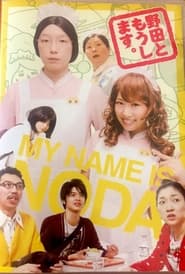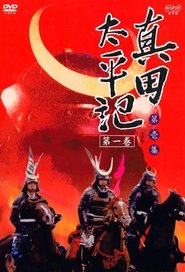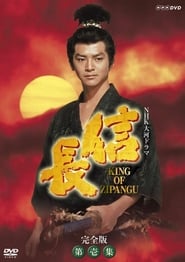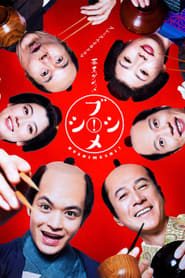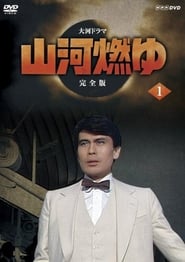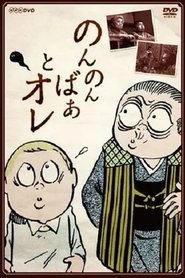Nhk TV Series - Page 9
-
She Loves to Cook, and She Loves to Eat
2022
star 8.8Cooking is how Nomoto de-stresses, but one day, she finds herself making way more than she can eat by herself. And so, she invites her neighbor Kasuga, who also lives alone. What will come out of this impromptu dinner invitation...? -
野田ともうします。
2010
野田ともうします。
2010
-
Moshi Moshi Nippon
2014
Moshi Moshi Nippon
2014
In recent years, major projects for promoting the "Cool Japan" concept have been launched, increasing its global recognition. However, further promotion for promising Japanese artists and artisans fusing traditional and modern culture is on call. The program aims to discover and set the stage for powerful but yet to be known people. -
Professional: Shigoto no ryûgi
2006
star 8It is said that "the style of work reflects a person's way of life." This documentary program closely follows top-notch professionals and thoroughly delves into their work. Since its premiere in January 2006, it has observed individuals at the forefront of their respective fields, such as Ichiro (Major League Baseball player), Sayuri Yoshinaga (film actor), Haruko Niitsu (janitor), Ken Takakura (film actor), Kasumi Ishikawa (table tennis player), Hikaru Utada (singer-songwriter), Kumamon (local government employee), and Yoshiharu Habu (professional shogi player). -
Sanada Taiheiki
1985
star 8The drama tells the story of the Sanada family. Originally serving the Takeda Clan they ruled the northern district of Shinano. The story begins right after the death of Takeda Shingen, continues through the rise of Tokugawa Ieyasu who founded the Tokugawa shogunate and covers roughly the period 1580-1610. -
Steel Frame
2010
Steel Frame
2010
Sharply revealing the issue of Japanese construction industry where bid-rigging was a common practice among the giants. After working diligently for three years at a construction site, Heita unwillingly transfers to a sales department where he becomes a part of the illegal collusion -- to limit open competition and obtain high-price public works within the colluding parties. He is torn from conducting unlawful action to save his company, yet deep inside wishing to abide by the law to follow his justice. What will his answer be? -
Nobunaga: King of Zipangu
1992
star 10On March 23, 1585, Japanese Christian envoys visited Pope Gregory XIII at the Papal Court in Rome, Italy. The drama begins 45 years earlier - in 1540 outside Lisbon, Portugal. -
Bushimeshi!--The Samurai Cook
2017
star 8Set during the Bakumatsu (final years of the Edo period). Sakai Banshiro is a lower-class samurai. Leaving his family behind, he works at the lord’s castle. He consoles and solves worries of the people by making food from recipes sent from his wife. -
Karyuu No Utage
2011
star 8“Karyu no Utage” tells the story of a housewife (Kuroki) from a middle-class household who has tried to raise her son with the belief that putting in great effort will result in even greater results, but his laziness leads to conflict between them. On top of that, he meets a woman over the Internet who is a part-timer like he is, and he later declares that they're going to marry. As the mother faces a widening gap between her ideal and her reality, the story explores the same gap that exists in modern society -
Burning Mountain River
1984
The three Amaba brothers are second-generation Japanese Americans, whose allegiances are torn by the bombing of Pearl Harbor. Determined to show his loyalty to his adopted country, Isamu volunteers for the U.S. Army and is shipped off to fight in Europe. A second brother, studying in Japan at the outbreak of hostilities, is conscripted to fight against the Americans as a Japanese soldier. The third brother Kenji (Matsumoto) avoids conflict by enlisting as a military interpreter, in which capacity he witnesses the war crimes trials that followed Japan's defeat. -
Beauty and the Fellow
2015
star 7A capable but unpopular showbiz manager, Kazuko, struggles to groom a younger, new male actor, Ryo, whom she had scouted, into a star. An unmotivated Ryo slowly becomes conscious of the pleasures of acting. Bonds of camaraderie grow, and before long, love gradually blossoms between them. -
Fujoshi, Ukkari Gei ni Kokuru
2019
star 7.2Jun is an 18-year-old high school student. He hides the fact that he is gay from his mother and other people. Miura-san is a classmate of Jun. She likes reading books about BL (genre depicting homoerotic stories). Jun tells Miura-san that BL is just fantasy and that gayness in real life is dirty. Miura-san tells Jun that his remark is offensive to gay people. Nevertheless, Jun and Miura-san become close. Jun becomes interested in Miura-san, and Miura-san begins to have feelings for Jun. One day, Miura-san tells Jun that she likes him. -
Bullets, Bones and Blocked Noses
2021
Police dog handler Ippei Aoba has a problem. It's called Oliver. To others, Oliver is a genius police dog that comes from a long line of geniuses, but, to Ippei, he appears—literally—as a lazy, foul-mouthed, middle-aged man in a dog costume. -
映像の世紀プレミアム
2016
映像の世紀プレミアム
2016
-
SWITCH Interview Masters
2013
star 8.5Two charismatic people from completely different fields who usually have no contact with each other meet, and with the intention of what kind of chemical reaction "switch" will enter, "masters" who are active on the front line will meet each other. In addition to the chemical reactions of the two charisma that can not be seen in a simple dialogue, they visit each other's work sites and explore common methodologies and hints for success, as well as the "face" of both the speaker and the listener. A new cross-interview show that you can enjoy. -
NHKスペシャル 沸騰都市
2008
NHKスペシャル 沸騰都市
2008
-
Q.E.D. -- Teen Detectives
2009
star 6A classic teen whodunit series! A girl with boundless curiosity and a boy math genius pair up to solve baffling mystery cases. -
NonNonBa
1991
NonNonBa
1991

